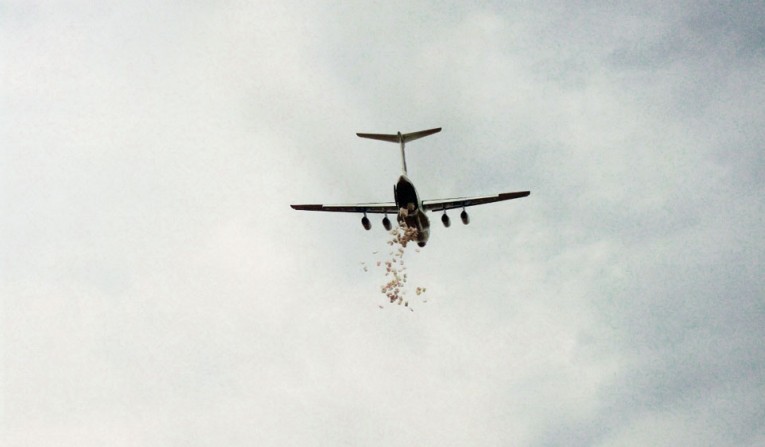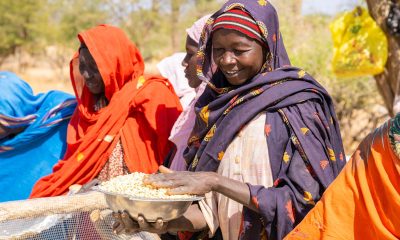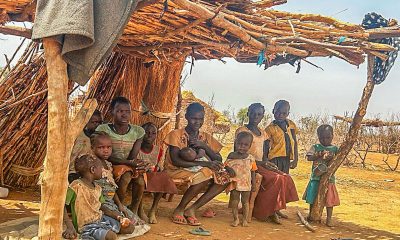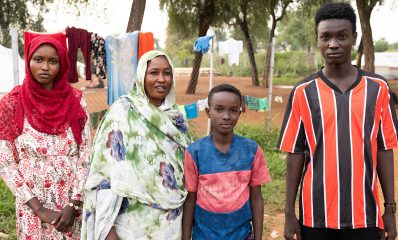Grain dropped from cargo planes alleviates a food crisis at the Yida refugee camp where Samaritan’s Purse is working in South Sudan
Truckloads of food and supplies arrived daily on the dirt trails that meander across the lowlands surrounding the Yida refugee camp in Unity State, South Sudan.
Samaritan’s Purse and the other agencies entrusted with providing food for the almost 40,000 refugees registered at the camp were working hard to make sure there would be enough to last from the start of the rainy season in early June until the dry season in November.
But in June a sudden surge of almost 24,000 refugees fleeing the violence and food shortages in the Nuba Mountains in Sudan swelled the camp population to over 60,000. Combined with the onset of the heavy rains that closed all the supply roads, it created the perfect storm of a looming food crisis.
By the beginning of September, the huge World Food Program storage tents were becoming alarmingly empty of the life-sustaining bags of grain that make up the bulk of the food supply for the camp population. An airdrop of 3,000 metric tons (approximately 120 semi loads) of grain was planned to alleviate the crisis.
Volunteers from the camp had cleared an area for a drop zone equivalent in size to 24 football fields. Teams of loaders, gleaners, and wardens were organized from the refugee community. On September 10 the airdrop commenced with 32 metric tons of sorghum, a crop widely cultivated by the Nuban people in their homeland.
The humanitarian crisis was caused by a campaign of terror perpetrated by the government of Sudan against its own citizens. Most of the sorghum crop in Nuba was not planted because of a lack of seed stock and because of the constant threat of bombs being dropped on the cultivators as they attempted to plant what they did have.
Brock Kreitzburg, Program Manager for Food Security at the Yida camp for Samaritan’s Purse, witnesses the reaction from the refugees as the cargo jets fly over dropping not life-destroying bombs, but life-saving food.
“The refugees watch as the bags of sorghum are dropped from the plane and they cheer as the bags fall earthward,” he said. “To the people of the refugee camp who have suffered so much in the Nuba Mountains, the food drop must be like manna from above.”
The flights take place six days a week, and it requires a lot of hard work to make them successful. About 1,300 bags of sorghum weighing 110 pounds each must be picked up and loaded onto a truck and then unloaded and stacked in the storage tents.
Spillage from broken bags must be gleaned and sifted to keep losses to a minimum.
Wardens keep watch around the perimeter of the drop zone to ensure that people and animals are kept out of harm’s way. The work is hard and the workers must endure the hot sun and high humidity, but spirits remain high as this important task continues.
Please pray for this project to continue safely. Pray for the refugees at the Yida camp, and for the Nuban people who are still suffering violence and hunger in their homeland. Pray for our staff as we are responsible for the food delivery at Yida. Please pray that people would see the care and compassion of Christ as we work.






